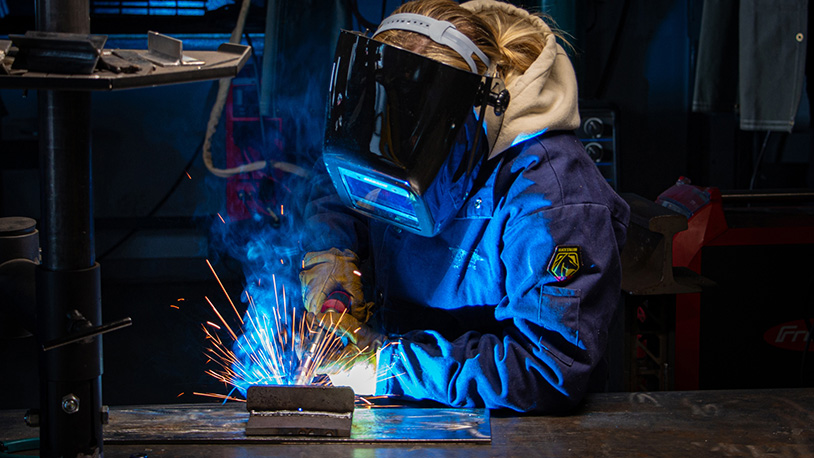Advanced Welding Technician Certificate
The Advanced Welding Technician Certificate gives you the skills to push beyond production welding, helping you find a career in custom fabrication, job shop work, or plant maintenance. Complete the Basic Welding Technician Certificate and then choose from applicable welding courses in Shielded Metal Arc Welding (SMAW), Gas Tungsten Arc Welding (GTAW), and Fabrication. The Advanced Welding Technician Certificate allows you to become eligible for specialized welding certifications through the American Welding Society (AWS).
Contact (815) 479-7521 with specific questions about this program.
(in-district) Total Amount: $5,181.75
Credit Hours to Complete: 27
Weeks to Complete: 32
-
COURSE LIST
Course Ids:

